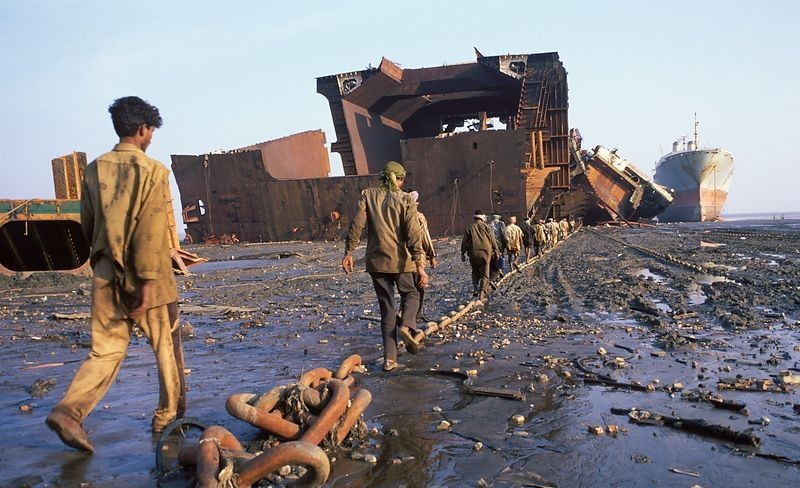There has been little improvement in working conditions at the shipbreaking yards in Alang-Sosiya (ASSBY), India, according to recent research issued by Mumbai’s Tata Institute of Social Sciences (TISS).
Specifically, the report highlighted several concerning breaches of the national legal framework aimed at protecting workers and their occupational health and safety.
These include the lack of protective equipment and inappropriate safety measures at the workplace, inadequate health facilities and too long working hours.
Although labor laws to protect and improve the working conditions and ensure the welfare of workers at ASSBY do exist, they have not been effectively implemented and taken seriously by different state government departments in Gujarat, according to the report.
Despite a number of initiatives by the Gujarat Maritime Board (GMB) towards the development of shipbreaking activities in Alang, the board is failing to monitor ASSBY and provide adequate facilities and infrastructure at the yards, TISS said.
Data collected by the Platform and Toxic Watch Alliance shows that there have been more than 500 fatal accidents since 1983 at the Alang shipbreaking yards – and at least 48 since 2014. Based on the findings of the TISS report, more than half of the total workers interviewed said they had been injured at their workplace in the past year. 39 percent of these workers informed that they had not received any medical support; 52 percent did not get any wage or compensation when they were on leave due to injury; and, 18 percent continued to work despite their injuries as they were worried to lose wages.
As explained, there is also no database created or maintained by the district authority about the number of workers at the shipbreaking yards. This makes it difficult to ensure the welfare of the workforce in Alang, with many of them being migrant workers.
“There is no lack of laws in India to protect both workers and the environment from the many harms caused by the unsustainable practices in Alang. It is high time that the Indian government enforces these laws to ensure that the industry embraces truly safe and green recycling practices off the beach,” Ingvild Jenssen, Director of the NGO Shipbreaking Platform, commented.
India’s recently approved Ship Recycling Bill (2019) and ratification of the International Maritime Organisation’s (IMO) Hong Kong Convention risk undermining existing laws and fail in establishing an effective framework for improving industry practices. The standards set by the Hong Kong Convention are weak, and have also been strongly criticized for simply rubberstamping beaching, a method which is banned in major ship owning countries, the NGO Shipbreaking Platform said.
